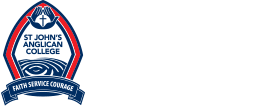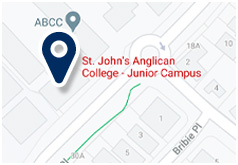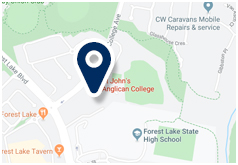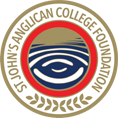Middle School Assessment and Reporting

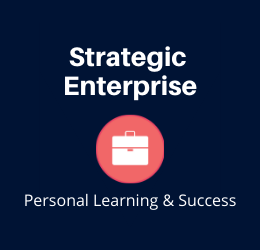
At its core, the new assessment and reporting protocols introduced in 2021 will see a reduction in high-stakes, summative assessments and an increase in our ability to extend and enrich student learning fluidly and without restrictions.
The Personal Learning and Success Enterprise encourages a culture of lifelong learning by developing adaptive learning programs, innovative technologies and professional partnerships in the St John’s community. By combining the requirements of the Australian Curriculum with the innovative new processes for assessment in our Middle School, St John’s students are provided with the knowledge, skills and confidence to flourish in their learning.
The Australian Curriculum is designed to teach students the skills and knowledge to be confident and creative individuals and become active and informed citizens. Due to its flexibility, we are able to personalise student learning and provide more opportunities for student growth and reflection. The Middle School curriculum also focuses on the integration of the QCAA’s 21st Century Skills which provide the foundation to develop the knowledge and dispositions for success in school, work and life.
For success in our ever-changing world, our students need more than just content knowledge. They need to become lifelong learners and global citizens who create opportunities and are confident in pursuing their passions. While some may not know or realise where their future passions lie, by focusing on the 21st Century Skills embedded within the curriculum, our students are better equipped for success across year levels, subject areas and beyond.
These imperative skills form the basis of our assessment progress points or checkpoints in each subject area in the Middle School. Through these checkpoints, teachers are able to provide timely and relevant feedback to students and families. Progress points vary from subject to subject and students will demonstrate their progress of these skills according to a continuum from ‘Not evident’ to ‘Mastering’. For classroom teachers and families alike, these progress points provide real-time feedback on each student and can be used to inform the teaching and learning in the classroom as well as opportunities for future growth and development.
In addition to the progress points, families will receive a formalised report at the end of each semester which includes the Australian Curriculum strands and standards descriptors (A-E) for each subject along with a Global Achievement Indicator demonstrating overall progress in the areas of:
- Retrieval and Comprehension
- Analytical Processes
- Knowledge Utilisation and Communication
Moving forward, semester reports will also feature short videos from Heads of Department, Curriculum Coordinators or Year-Level Coordinators to provide meaningful context outlining the units of study and focus areas explored in that subject areas within the report.
The primary objective of the new assessment and reporting framework for Middle School is to positively change the landscape of assessments whilst providing ongoing, meaningful feedback to teachers, families and students to better facilitate individual student growth and development. With the shift to ‘Assessment for Learning’, these changes will see our students strengthen their metacognitive practice thereby enriching their holistic, life-long learning experience at St John’s.
Braydon Giles,
Head of Middle School


